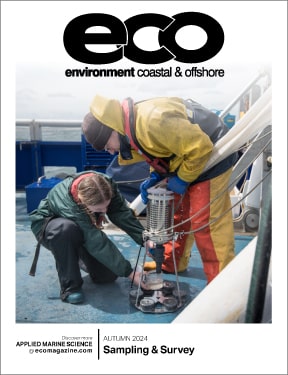The total value of UK subsea output in the 2019 fiscal year was £7.8billion, an increase on the 2017 figure of £7.5 billion and there were promising signs of rising recruitment and a clear upturn in activity.
The expectation of growth among both Tier 1 companies and SMEs was high, fueled by a recovering oil and gas sector and by the exciting opportunities presented by the energy transition.
As a result, the mood at Subsea Expo in February was upbeat. With over 6,600 delegates, one of the largest attendances on record, the event welcomed the biggest delegation of international visitors from all four corners of the globe.
But then everything changed in March as the world went into lockdown due to the pandemic. Not only did companies have to quickly adapt to remote working, they had to go into survival mode, cutting capex and opex, furloughing staff and taking advantage of VAT and PAYE deferrals to preserve cash. Despite inevitable and unavoidable redundancies and restructurings, the subsea industry appears to have weathered the storm with many companies now reporting a steady state and some, particularly SMEs, reporting a cautious optimism for the second half of next year.
It is likely to be some time before the full impact of the events of 2020 on sector is known and, after the chaos of this year, when uncertainty has reigned, only the brave will be making predictions about our sector. One thing we do know for certain is that our industry is nothing if not resilient and it will find a way to build back stronger.
With a vaccine roll-out now within touching distance, we can look forward to 2021 with more optimism and confidence. When restrictions are finally lifted, we can expect a surge in demand for oil and gas which will impact on commodity prices and activity in this sector.
Meanwhile, we have much to be optimistic about in terms of the energy transition and the blue economy. Forecast to be worth around $3 trillion in the next ten years, the blue economy is the sustainable use of ocean resources for economic growth. Oil and gas, offshore wind and marine renewables and aquaculture account for around a third of its value.
This is good news for the subsea industry whose underwater engineering capabilities, honed in North Sea oil and gas and increasingly in demand in offshore wind, are eminently transferrable into both established and emerging sectors of the blue economy. Offshore renewables now account for 25% of all subsea revenues and subsea firms are reporting increasing diversification, particularly into defense, marine science and aquaculture. Subsea UK has been cultivating strong cross-sector partnerships and alliances in this area with bodies such as the UK Defence Solutions Centre, Scottish Aquaculture Innovation Centre and Renewable UK.
Equally, the government’s recently announced 10 point energy plan included three points of particular interest to the subsea supply chain – offshore wind, hydrogen and carbon capture – areas which will depend on the subsea expertise we have honed over decades.
The supply chain has a key role to play in the UK’s energy transition. There’s a clear opportunity to maximize our supply chain’s resilience, experience and expertise in creating a cleaner, greener future globally. The supply chain needs to be at the heart of discussions with industry and government, shaping and informing a strategy for how the UK can competitively develop and deliver the technology and services to support the race to net-zero, cementing the UK as a world-leader in low-carbon and creating the jobs and exports of the future.
And more recently, the announcement that the UK government has pledged support for the development of the Global Underwater Hub in its annual spending review was the greenlight for us to move into the implementation phase, following confirmation of Scottish Government funding earlier in the year. The funding from both governments recognizes the tremendous scale and potential of underwater engineering and technology as a valuable, standalone industry sector.
With significantly more dedicated resources through a Global Underwater Hub, Subsea UK will be able to provide our industry with the right level of support at the right time, helping to develop the disruptive technology and new services required to delve deeper into existing and emerging opportunities, at home and abroad, in the energy transition, green recovery and the Blue Economy.
By Neil Gordon, Subsea UK CEO

